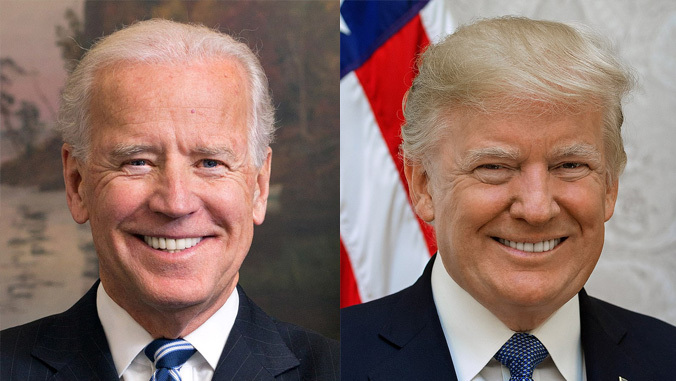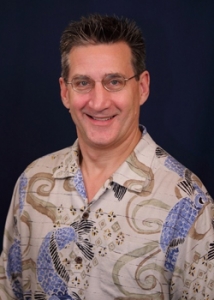
Editor’s note: Early access to the draft manuscript is being made available due to its timely content.
Chronological age, a topic that often comes up during presidential elections, should not be a factor in the 2020 election. A study, involving a University of Hawaiʻi at Mānoa researcher, in the Journal on Active Aging, concluded that both presidential candidates—former Vice President Joe Biden, 77, and President Donald Trump, 74—are likely to maintain their health beyond the end of the next presidential term.

“Both candidates appear to be on course to become ‘super-agers,’ men and women who live into their eighties or longer, with preserved physical and cognitive function,” said co-author Bradley Willcox, director of research in the Department of Geriatric Medicine at the John A. Burns School of Medicine (JABSOM). “They face lower than average risk of experiencing significant health or cognitive functioning challenges during the next four years.”
To evaluate each candidate’s likelihood of surviving a four-year term in office, the researchers scientifically evaluated the candidates’ health status based on publicly available medical records and confirmed publicly available personal information. This is the first time that the medical records and personal attributes of presidential candidates have been scientifically evaluated by experts in the field of aging.
Willcox has a long history of aging-related research, along with study reviewer and adjunct JABSOM faculty (and twin brother), Craig Willcox at UH, Kuakini Medical Center’s Honolulu Heart Program – Center for Translational Research on Aging, and the Okinawa Centenarian Study, which has allowed the brothers to examine thousands of super-agers.
Key findings
- Biden and Trump are likely to be “super-agers,” a subgroup of people that maintain their mental and physical functioning and tend to live longer than the average person their age.
- Both candidates have a higher than average probability of surviving a four-year term in office, relative to other men their age. For Biden, the probability of surviving the next four years is 95.2% (vs. 82.2%). For Trump, this is 90.3% (vs. 86.2%).
- Biden is expected to outlive Trump, even though he is three years older. The researchers note Biden’s “nearly perfect health profile for a man his age,” compared with Trump’s “significant but modifiable” risk factors.
- While Trump is noted to have an elevated familial risk of late-onset Alzheimer’s disease, neither candidate is expected to have major cognitive functioning challenges now or during the next four years.
Biological age more important
“The results are evidence that age does not matter in this historic election in which the next elected president will be the oldest in American history,” said corresponding author Stuart Jay Olshansky, professor of epidemiology and biostatistics at the University of Illinois at Chicago. “We see chronical age as a topic of discussion time and again during elections, even though scientific and medical evidence tells us that biological age is far more important.”
According to the researchers, biological age is reflective of how rapidly a body is growing old, which occurs at different rates and is influenced by genetics, behavioral and social risk factors.
Added Willcox, “The weaponizing of aging to portray the opposing candidate as a doddering old fool, in the presidential campaign, is ageism, pure and simple. In this election, each candidate is biologically younger than their chronological age.”
“We live in an aging society, and it’s important that we value, respect and continue to have a place in our culture for people of all ages. No one should be discounted from any position, even the presidency, based on their age,” said Olshansky.

